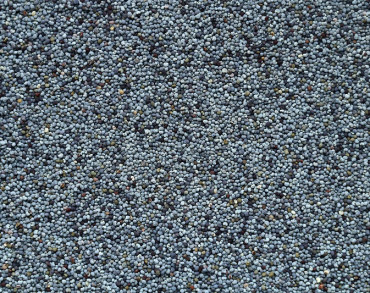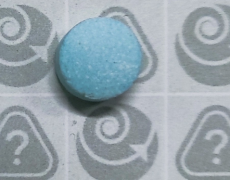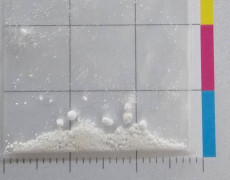What is poppy seed tea?


Poppy seed tea sounds harmless, but like everything that contains opiates, there are risks to be aware of. Here’s what you need to know.
Poppy seeds are harmless when eaten in the small amounts found in baked goods or salad dressings, but unwashed poppy seeds pose a risk as they contain higher levels of opiates. That means consuming unwashed poppy seeds, for example in tea, can lead to an overdose.
Poppy seeds contain codeine, morphine and other opioids, and they can also be used to make opium and heroin. As with all substances, the effects vary from person to person as everyone processes and metabolises them differently. There have been instances of people failing urine drug screenings after eating poppy seeds. You can read more about that here.
Stay safer by staying informed. Sign up to receive alerts and notifications about any dangerous drugs in NZ. Check out the alerts page to see what we've already found.
What are unwashed poppy seeds?
The poppy seeds used in food preparation are washed, which removes up to 90% of the opiates they contain. The seeds, stems, and pods sold to make poppy seed tea—known collectively as "poppy straw"—are unwashed. That means more opiates are potentially left in place, which can lead to a psychoactive effect.
Poppy seeds can vary in their concentrations of opioids, meaning that the strength of the tea made by one crop of seed can be quite different from another. This makes it harder to control the dose when drinking the tea. When people take high doses of opioids, it can lead to an overdose, with the slowing down or stopping of the respiratory system which can result in death.
What are the risks of poppy seed tea?
Research has shown that it is possible to create a lethal dose of opioids in poppy seed tea brewed at home. Because it is almost impossible to tell how much opioids there is in any one crop of poppy pods or seeds, it is also impossible to control the dose in brewed tea. This means there is an increased risk of overdose.
An opioid overdose is characterised by unconsciousness, and slow and ineffective breathing (respiratory depression). It’s not necessarily fatal, but non-fatal overdoses can still bring lasting health consequences and increase the chance of a fatal overdose later.
If you or someone you know start to lose consciousness or breathe slowly after brewing poppy seed tea, call 111 immediately. Naloxone can be used to avoid the risk of overdose.
It can be difficult to recognise an opioid overdose. If you aren’t sure, it is best to treat the situation like an overdose – you could save a life. It’s important that you don’t leave the person alone – ring 111 and ask for an ambulance.
The signs of an opioid overdose include:
- The person's face is extremely pale and/or feels clammy to the touch.
- Their body goes limp.
- Their fingernails or lips have a purple or blue colour.
- They start vomiting or making gurgling noises.
- They cannot be awakened or are unable to speak.
- Their pupils become very small.
- Their breathing or heartbeat slows or stops.
How to stay safer
Avoid combining with other depressant drugs including other opioids, alcohol, barbiturates, gabapentinoids, thienodiazepines, benzodiazepines, GHB/GBL and ketamine as these can increase the dangerous effects of opioids (for example, slowing or stopping breathing).
Have the opioid overdose reversal drug naloxone with you and use it if someone is overdosing from opioids – it can save their life. High potency opioids may require more than one dose of naloxone. Check with your local needle exchange outlet to see if they have naloxone available.
You can also find out more about nyxoid and naloxone on the NZ Drug Foundation’s website, The Level.
If you think someone is suffering from an opioid overdose:
- Call 111 immediately and ask for an ambulance.
- Don’t panic. Stay calm.
- Keep yourself safe. Watch out for used needles and blood on the bed or floor etc.
- Check if the person is conscious by gently shaking them and calling their name or asking if they’re ok. This may bring the person round.
- If the person does not respond, check whether they are breathing.
- Check their airway. Tilt their head back enough to open their airway. Remove anything from their mouth like food or vomit.
- Are they breathing? Put you ear next to their mouth. Can you feel any breath? Is their chest rising?
- If they are breathing put them in the recovery position.
- If they are not breathing start CPR.
If you have any concerns about your own drinking or drug taking, get in touch with the Alcohol Drug Helpline Call 0800 787 797, or text 8681, to speak with a trained counsellor – they’ll be able to provide you with helpful information, insight and support. They’re available 24/7, all calls are free and confidential. You can also chat with the team through the website.
Further Reading
Latest Alerts & Notifications

Highly potent synthetic opioid detected in fake diazepam tablet

Alpha-PVP like substance misrepresented as MDMA in Christchurch

Heroin sold as ketamine in Auckland region

Highly potent synthetic opioid misrepresented as butonitazene
